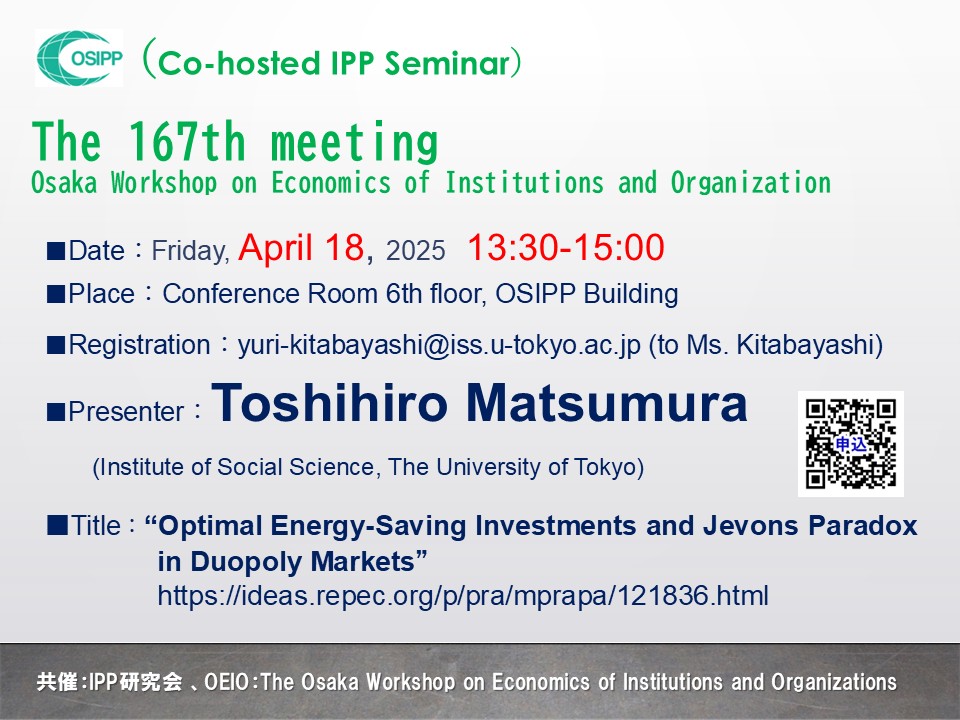
- Pre-book only
The 167th meeting jointly organized with International Public Policy Seminar
Intended for |
|
|---|---|
Date | 2025.4.18 Fri 13:30 - 15:00 |
Venue |
|
How to apply | Send an email to Ms. Kitabayashi via the address listed below. |
Contact | Ms. Kitabayashi, Institute of Social Science, The University of Tokyo |
The 167th meeting jointly organized with International Public Policy Seminar
The Osaka Workshop on Economics of Institutions and Organizations, OEIO, meets every month to exchange research ideas on institutional and organizational economics. Participants include both people specialized in theoretical research and those in empirical research. Topics of meetings might be about microeconomic theory, macroeconomic theory, or economic history..., whatever on institutional and organizational economics.
Presenter: Toshihiro Matsumura
(Institute of Social Science, The University of Tokyo)
Title: "Optimal Energy-Saving Investments and Jevons Paradox in Duopoly Markets "
Abstract:This study theoretically investigates energy-saving investment incentives in duopolies. First, we investigate a binary choice model in which each firm chooses whether to make an energy-saving investment and then they face Cournot competition. We focus on the incentive to become the leading firm by the investment, when the rival does not engage in this project. We find the private incentive to be insufficient for welfare (thereby requiring promotion through policies), if Pigouvian tax is imposed. However, this incentive can be excessive when the emission tax rate is lower than the Pigouvian level. Next, we investigate a model in which firms can choose energy-saving investment levels continuously. We find that the equilibrium investment can be (is not) excessive for welfare when the emission tax rate is lower than (equal to) the Pigouvian. These results suggest that policy formation combining a low emission tax and subsidies for promoting energy-saving investments may harm welfare. Moreover, we find that drastic innovation rather than minor improvement of energy efficiency should be subsidized because the former less likely leads to Jevons paradox.